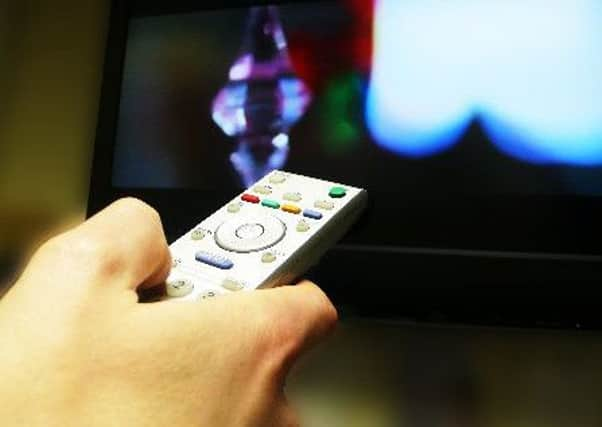TV licence needed for BBC iPlayer from September 1


A change in the law means as of 1 September 2016, a licence will be needed to download or watch BBC programmes on demand, including catch-up TV on BBC iPlayer.
Research by TV Licensing has revealed iPlayer is the most popular catch-up platform used by students, and confirms that two in three students view catch up TV, with many watching on-demand programmes.
Advertisement
Hide AdAdvertisement
Hide AdWith less than a quarter of students (22%) taking a TV with them to university, online viewing on mobile devices has become by far the favoured way of consuming catch up TV content.
Watching TV remains an integral part of university life with 84% students finding it gives them the chance to relax on their own and more than half (60%) citing TV viewing as a great opportunity to unwind with friends.
Karen Grimason, spokesperson for TV Licensing Northern Ireland, said: “Watching catch up TV is really popular among students and we want to make sure students are aware of the change in law.
“From 1 September, everyone will need to be covered by a TV Licence to watch BBC TV programmes on demand – including catch-up on iPlayer. Students can check at our dedicated TV Licence for students page whether they are correctly licensed before the big move.”
Advertisement
Hide AdAdvertisement
Hide Ad“And, of course, you still need to be covered by a licence for all live viewing and recording, no matter which channel you are watching or what device you are watching on.”
Students who already have a licence will be covered automatically. Those who do not will need a licence from 1 September to watch BBC programmes on-demand on BBC iPlayer, including where iPlayer is accessed through another provider such as Sky or Virgin.
A licence will not be needed to watch other on-demand services, such as ITV Player or Netflix. This applies to all devices, including a smart TV, desktop computer or laptop, mobile phone, tablet, digital box or games console.
In limited circumstances, students can be covered by the licence at their parents’ address. The device must be powered by its own internal batteries – eg a tablet or mobile phone - and must not be plugged it into the mains when receiving television. This use is enabled by the Regulations governing TV Licensing.
Advertisement
Hide AdAdvertisement
Hide AdIf you are at university, visit the dedicated TV Licence for students FAQ section, or contact an adviser over the phone on 0300 790 6113.
Find more information and the answers to the most frequently asked questions about TV Licence and the change in the law.